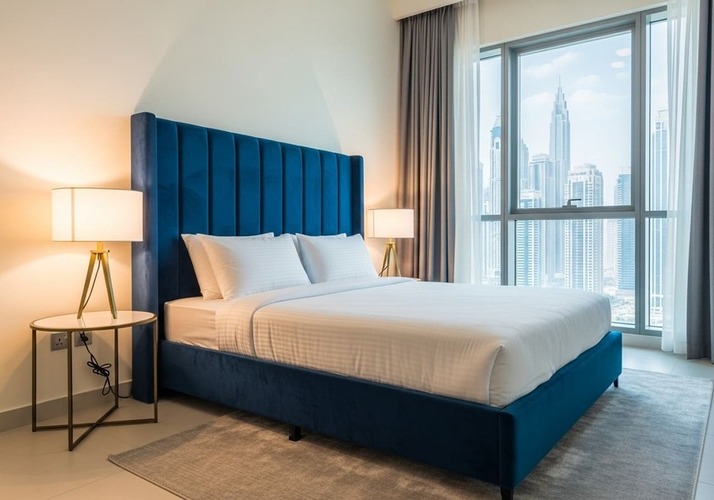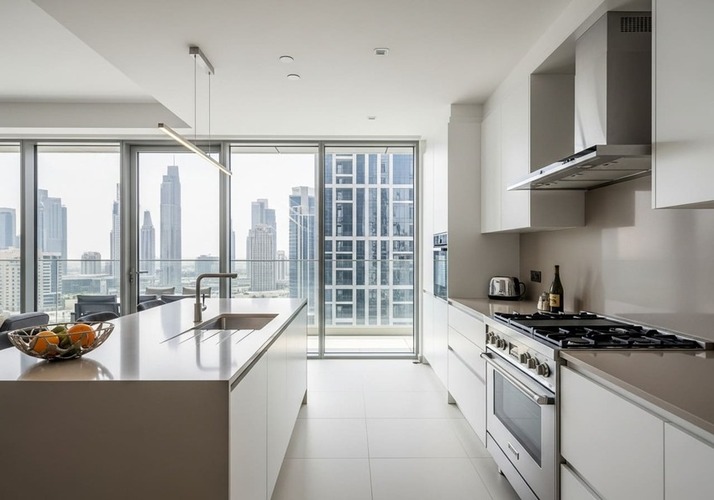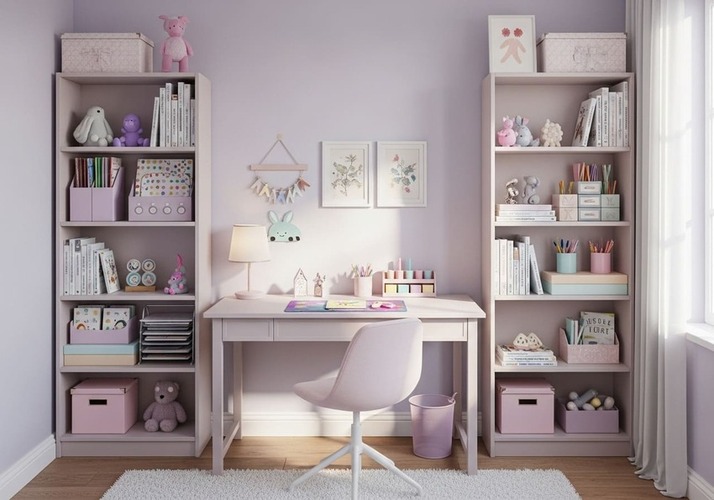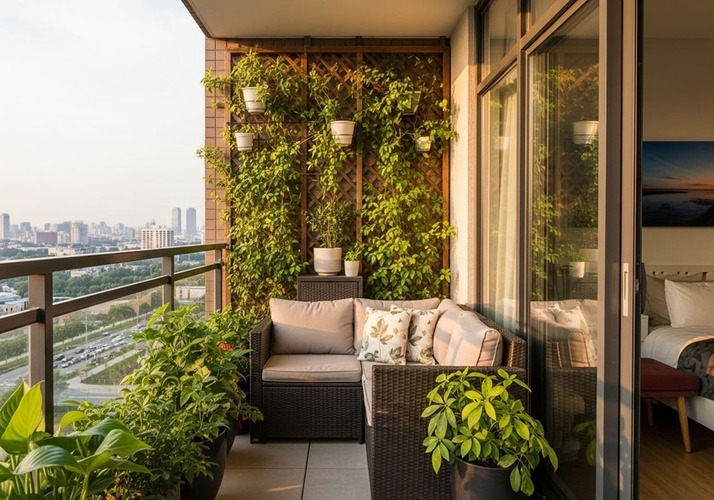In Dubai’s multicultural landscape, Vastu Shastra remains a trusted tool for creating harmony—especially among Indian and South Asian families. While western design trends dominate, many seek Vastu guidance when moving into their new Sereno apartment or JVC villa. Other prestigious communities like Dubai Hills and Dubai Marina, developed by leading companies such as Emaar, are also popular choices for residents mindful of Vastu principles. Should the bed face south? Is your kitchen placement problematic? This blog answers those questions, giving you practical, culturally resonant advice for positive energy in your Dubai home—and the feeling of harmony and well-being that Vastu aims to create—no matter the floor plan.
Introduction to Vastu
Vastu Shastra, often referred to as the science of architecture, is an ancient Indian system that focuses on creating harmony and balance within living spaces. This concept is commonly embraced by those seeking to optimize the flow of energy, or “chi,” throughout their homes. The core belief behind Vastu principles is that the design and orientation of a house can significantly influence the happiness, health, and prosperity of its residents. By thoughtfully designing spaces according to these time-tested guidelines, individuals can cultivate a peaceful and positive environment that supports their overall well-being. In Dubai’s dynamic real estate industry, the demand for Vastu compliant homes is steadily rising, as more buyers recognize the value of living in spaces that are designed to enhance harmony and energy flow. Whether you are building, buying, or renovating, understanding the science and principles of Vastu can help you create a home that truly supports your lifestyle and aspirations.
Vastu in Dubai: Adapting Ancient Wisdom to Modern Living
Dubai is a city where tradition meets innovation, and this unique blend is reflected in the way Vastu principles are being adapted to suit modern living. As the city’s real estate industry evolves, more developers and homeowners are recognizing the benefits of Vastu compliant homes. Strategic design choices—such as positioning the main door to face north, east, or northeast, and placing the dining room in the west or east zone—are increasingly being incorporated into new properties. Windows are thoughtfully placed to maximize natural light and energy flow, while rooms are oriented to harness the positive influences of each direction. These elements are not only considered auspicious but also contribute to a sense of peace and well-being for residents. The growing demand for Vastu compliant homes in Dubai reflects a broader appreciation for designs that balance ancient wisdom with contemporary needs. By embracing these principles, residents can enjoy a harmonious living environment that supports both their personal happiness and the vibrant community spirit of the city.
1. Main Entrance & Living Room
The living room is often considered the heart of the home, where family and people gather to connect and relax. The environment here can greatly influence the mood and well-being of people in the house.
Ideal Direction: Northeast or east-facing entrances are auspicious—promoting prosperity and open energy.
Furniture Layout: Use an L‑shape sofa facing the north or east wall. Keep the center uncluttered to allow free energy flow and create a welcoming impression for guests as they enter.
Colors & Décor: Use soft pastel wall colors with natural decor elements like indoor plants and water features. Mirrors should not face the entrance, as they reflect energy away. Remove or organize unnecessary items, such as broken or worn-out objects, to maintain positive energy in the space.
2. Bedroom Vastu Tips

Bed Placement: Position the headboard towards the south or east. Avoid placing the bed under a beam or against a wall shared with a bathroom.
After arranging your bed, also consider replacing old or worn-out bedding and clothing. Keeping these items for longer periods can negatively affect the room’s energy and overall harmony.
Mirror Rules: Mirrors should not reflect the bed directly—it can disrupt relationships and sleep quality.
Colors & Ambience: Soothing tones—like cream, pastel green, light grey—work best. These colors help residents relax and promote restful sleep. Avoid intense reds or dark shades for restful spaces.
3. Vastu Kitchen Guidelines

Direction: Southeast is ideal for cooking; if not possible, opt for Northwest. A square or rectangular kitchen layout is preferred for optimal energy flow and harmony.
Stove & Sink: Keep them apart. The stove (fire element) should face east, with cookers away from doors. Sink (water element) should be on the north or northeast wall.
Ventilation & Light: Ensure an east/north window, and use white or earthy tones on cabinets. Incorporate natural elements like wood, stone, or plants to enhance positive energy and balance.
Colors: Use warm kitchen colors like peach, yellow, or light brown. Avoid stark greys or dark blue.
4. Children’s Room & Study Areas

Bed Direction: Use south or east orientations for improved concentration and growth energy.
Study Desk Placement: North or east-facing desks boost study performance. Create a quiet study nook to encourage focus and minimize distractions. Align the desk or study area with the sun’s path to maximize natural light and enhance concentration. Keep the desk free of clutter and away from windows that distract.
Storage Tips: Keep heavy cupboards in the west or southwest wall. Ensure toy storage is tidy, allowing healthy energy flow.
Decor Accents: Use light blue and green tones—these promote focus and calm.
5. Bathrooms & Toilets
Location Matters: Avoid bathrooms in the northeast corner.
Ventilation Essentials: Include a small window or powerful exhaust fan to remove stagnant energy.
Door Management: Keep bathroom doors closed at all times. Use light earth tones or soft whites.
6. Dining Area & Puja Space
Dining Setup: Ideally in the west or north area. Keep it neat and clutter-free.
Puja/Prayer Space: North, northeast, or East is ideal. Ensure it’s elevated, clean, and well-lit.
Energy Considerations: Avoid placing puja spaces under staircases or directly opposite bathrooms.
7. Balcony & Outdoor Covings

Enjoying a balcony or outdoor space overlooking a park or green area can enhance relaxation and provide a refreshing environment, especially in popular Dubai communities like Jumeirah Park or Central Park Residence Tower.
Balcony Use: Open east- or north-facing balconies boost fresh energy. Open views to the sky are important for maximizing natural light and positive energy.
Plant Placement: Use indoor-friendly green plants in the northeast corner. Avoid thorny plants like cactus indoors.
Seating Harmony: Place seating facing east or north for peaceful outdoor moments.
8. Colors, Materials & Energy Flow
Wall & Décor Hues: Pastels like pale green, beige, soft yellows evoke calm. Deep reds or blacks are best avoided indoors. Vastu principles, much like Feng Shui, emphasize the importance of color and material choices to support positive energy flow and harmony with natural elements.
Lighting: Maximize natural daylight—especially in east and north spaces. Use warm, soothing lighting indoors.
Materials: Use natural finishes—wood, stone, light fabrics, carpets. Avoid strong artificial scents; opt for gentle essential oils. Avoid artificial or dried plants, as they are believed to bring bad luck according to Vastu.
9. Vastu Fixtures & Your Serenity
In recent years, the popularity of Vastu fixtures has surged as more people seek to enhance serenity and positive energy in their living spaces.
Fountains: If you include an indoor water fountain, ensure it faces north or northeast to align with Vastu home principles.
Wall Art: Nature-themed or family-focused wall art can help create a harmonious environment, further supporting the transformation of your space into a true Vastu home.
10. Simple Tips That Make a Big Difference
Clear clutter, especially from the center of rooms.
Keep pathways open and electrical wiring hidden.
Use architecture-friendly solutions—like floor lamps instead of ceiling beams—to avoid overhead structures.
Add mirrors to small north-facing spaces to expand light.
Choose Vastu-friendly furniture placements.
Follow leading Vastu practices for the best results in your home.
Invest in Vastu improvements to enjoy long-term benefits in harmony and prosperity.
Consult a team of Vastu experts or designers to ensure your home is optimally designed.
Incorporate elements that reflect the lived experiences and heritage of your family for a more personalized space.
Vastu-compliant houses are known to support health, prosperity, and positive energy flow.
Conclusion: Embracing Harmony in Your Dubai Home
Embracing Vastu principles in your Dubai home is more than just a design choice—it’s a step toward greater harmony, peace, and happiness in your daily life. By applying these ancient guidelines, you can create a living space that not only looks beautiful but also feels balanced and supportive of your well-being. Whether you are buying, building, or renovating, considering Vastu compliance can enhance your quality of life and reflect your commitment to a harmonious lifestyle. As the real estate industry in Dubai continues to recognize the value of Vastu compliant homes, the demand for such properties is only set to increase. Investing in a Vastu compliant home is a wise decision that can bring long-term benefits, from improved relationships to greater personal fulfillment. Take the first step today—consult with a Vastu expert and discover how the science of Vastu can help you create a peaceful, prosperous, and truly harmonious home in Dubai.
FAQs
1. Can Vastu be applied in Dubai apartments?
Yes, when talking about Vastu, it can be adapted to any home, including Dubai apartments. Even with fixed layouts, small changes in furniture placement, colors, and décor can align your space with Vastu principles.
2. What is the best direction for a main door as per Vastu?
The most auspicious directions for the entrance are East or Northeast. These allow positive energy (prana) to enter freely and are associated with prosperity and growth.
3. What are simple Vastu remedies for a rented home?
If structural changes aren’t possible, use mirrors, plants, Vastu pyramids, and directional lighting to rebalance energies. Placing your bed’s headboard towards the south and avoiding mirrors facing the bed are simple yet effective remedies.
4. Is Vastu really important for modern homes in UAE?
While not mandatory, many homeowners—especially South Asian families—believe Vastu enhances peace, health, and financial stability. When talking about Vastu, it also helps personalize space with deeper cultural meaning.
5. Which direction should a child face while studying?
Children should ideally face the East or North while studying. This supports better concentration, creativity, and memory according to Vastu Shastra.
6. What are common Vastu mistakes in homes?
Common errors include placing beds with the head pointing north, mirrors directly facing the bed, clutter near entrances, having kitchens and toilets adjacent without a buffer, and improper staircase placement—such as not following the recommended Southwest location for the staircase, which can disrupt harmony and flow in the house.
7. What’s the ideal kitchen direction as per Vastu in UAE homes?
The Southeast corner is ideal for kitchens. If that’s not possible, the Northwest is the next best option. Ensure the stove faces East while cooking.
8. Are there Vastu-compliant properties in Dubai?
While not explicitly labeled, many developers consider Vastu-friendly layouts. Buyers can also apply Vastu principles after moving in through mindful interior design and orientation.

